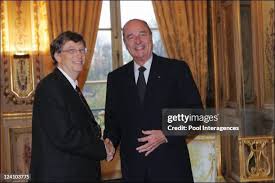
Introduction
The role of the president in France is a pivotal aspect of the country’s political framework and has shaped its contemporary democratic landscape. As the fifth republic’s head of state since 1958, the French president wields significant power, both domestically and internationally. Understanding the evolution and leadership of French presidents provides essential insights into the political climate of France.
The Role of the French President
The French constitution grants the president substantial authority, including the ability to appoint the Prime Minister, dissolve the National Assembly, and direct foreign policy. This position is crucial for navigating France through domestic challenges and international relations. Noteworthy presidents such as Charles de Gaulle, François Mitterrand, and more recently, Emmanuel Macron have left indelible marks on French politics.
Recent Developments in French Presidential Elections
In the 2022 presidential election, Emmanuel Macron was re-elected, defeating Marine Le Pen. His presidency, characterized by centrist reforms and attempts to modernise the French economy, has faced numerous challenges including protests against pension reforms, rising inflation, and the ongoing impact of the COVID-19 pandemic. Macron’s administration has also dealt with the complexities of a divided National Assembly, following legislative elections that saw La République En Marche (LREM) lose its absolute majority.
Historical Context of French Presidents
The historical context of French presidents reveals vast changes within the Republic. The presidency has evolved from a largely ceremonial role under the Fourth Republic, to the more executive-focused authority established by de Gaulle. Mitterrand’s era highlighted both socialist and European integration themes, while Jacques Chirac and Nicolas Sarkozy marked the tumultuous shift towards addressing globalization and security.
Conclusion
The legacy of French presidents continues to shape national policies and societal values within France. The short-term political forecast suggests ongoing challenges for the current administration, particularly with pressing issues such as climate change, immigration, and economic stability. As the political landscape evolves, the role of the French president will undoubtedly remain a critical focus for both citizens and international observers. Understanding this dynamic not only aids in comprehending French politics but also offers broader lessons on leadership in a complex global arena.
You may also like

Understanding the Current Political Landscape in the UK

The UKIP Party: Recent Developments and Future Outlook
